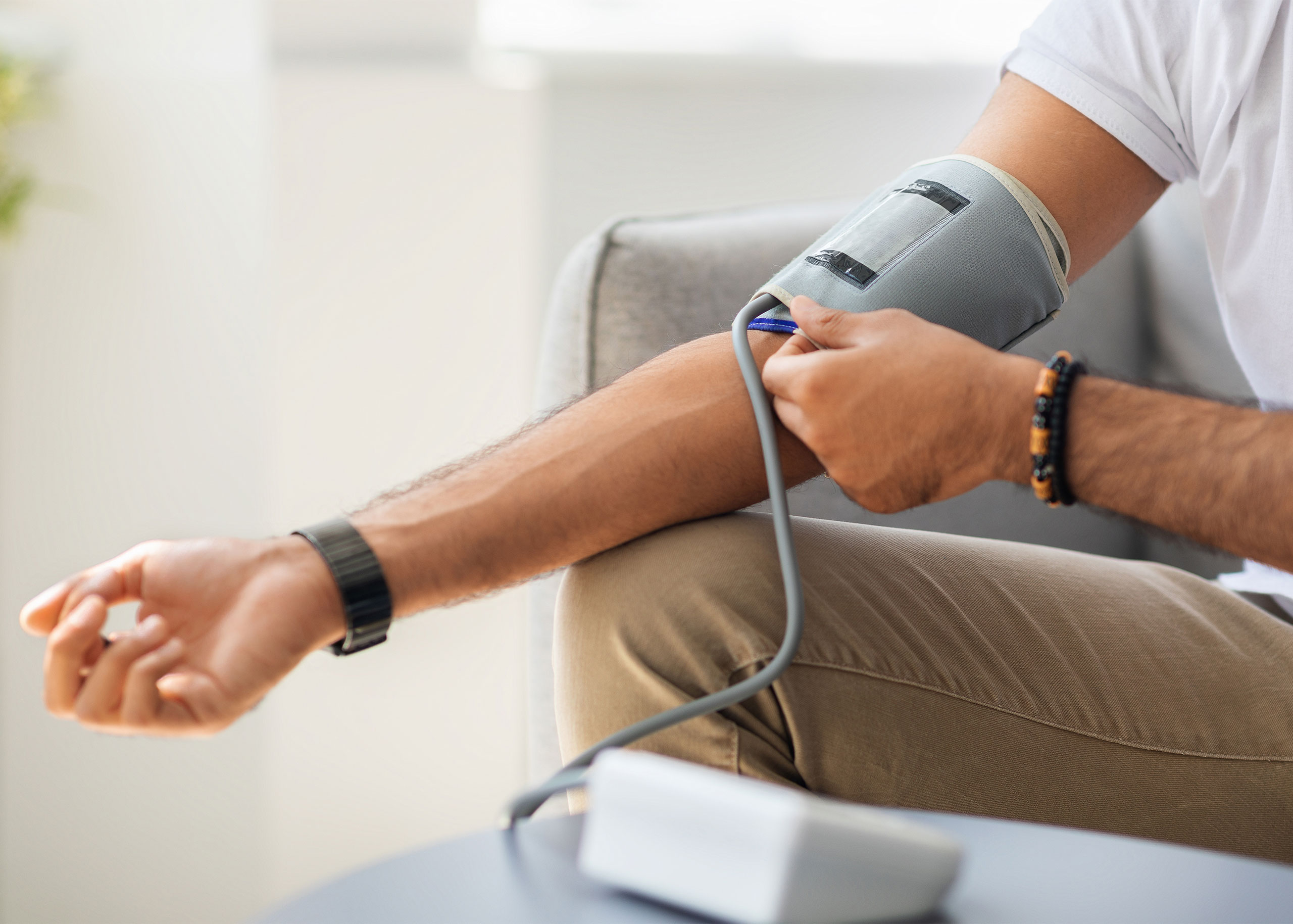High blood pressure which is commonly known as hypertension is a condition that have been affecting millions of people worldwide. It’s a condition that occurs when the blood force against your arteries become so strong that would lead to potential risks like heart disease, stroke and even kidney problems. Hypertension would ideally develop without noticeable symptoms which makes it important to understand its major risk factors, management strategies and even prevention methods to ensure that your heart is well-protected to ensure an overall well- being.
What is High Blood Pressure?
Blood pressure is measured using two numbers: systolic (the top number) and diastolic (the bottom number). Systolic pressure measures the force of blood when your heart beats, while diastolic pressure measures the force when your heart is resting between beats. Normal blood pressure typically falls under 120/80 mmHg. When blood pressure rises above these levels, it can be classified as prehypertension or hypertension, depending on how high it is.
Risk Factors for High Blood Pressure
Several factors contribute to high blood pressure. Some are beyond your control, but many can be managed or mitigated through lifestyle changes. Key risk factors for hypertension include:
- Age: Blood pressure tends to rise as you age, particularly after 45 years.
- Family History: If high blood pressure runs in your family, your risk increases.
- Obesity: Excess weight puts more strain on the heart and increases blood pressure.
- Lack of Physical Activity: Sedentary lifestyles can lead to weight gain and higher blood pressure.
- Unhealthy Diet: Diets high in salt, unhealthy fats, and low in potassium can increase blood pressure.
- Stress: Chronic stress and poor stress management can contribute to hypertension.
- Excessive Alcohol: Drinking in excess can lead to high blood pressure.
- Smoking: Smoking damages blood vessels, leading to higher blood pressure.
Blood Pressure Management: How to Keep It Under Control
Effective blood pressure management involves lifestyle modifications, dietary adjustments, exercise, and in some cases, medication. Here’s how you can keep your blood pressure within a healthy range:
1. Adopt a Healthy Lifestyle
A healthy lifestyle plays a critical role in preventing and managing high blood pressure. This includes maintaining a healthy weight, avoiding smoking, and limiting alcohol intake. Adopting a balanced and nutritious diet while managing stress levels are also essential components of blood pressure control.
2. Dietary Strategies for Hypertension
Eating a heart-healthy diet can significantly reduce your risk of high blood pressure. Here are some key dietary strategies:
- Reduce Sodium Intake: High sodium levels can cause the body to retain water, leading to higher blood pressure. Limiting salt in your diet is one of the most important dietary strategies you can make.
- Increase Potassium: Foods like bananas, sweet potatoes, and leafy greens are rich in potassium, which helps counteract sodium’s effects and lower blood pressure.
- Consume More Fruits and Vegetables: A diet rich in fresh fruits and vegetables is beneficial for heart health and blood pressure regulation.
- Limit Processed Foods: Processed foods, which are high in unhealthy fats, sugars, and sodium, should be avoided.
- Focus on Whole Grains and Lean Proteins: Whole grains, lean meats, and plant-based proteins are great options for managing blood pressure.
3. Exercise Recommendations
Regular physical activity helps lower blood pressure by improving heart function and reducing stress. Engaging in at least 30 minutes of moderate aerobic exercise, such as brisk walking, cycling, or swimming, on most days of the week can significantly reduce your blood pressure levels.
4. Stress Management
Chronic stress is a significant contributor to high blood pressure. Finding effective ways to manage stress can help control hypertension. Some effective strategies include:
- Deep Breathing and Meditation: Practices like deep breathing, yoga, and mindfulness meditation can help reduce stress.
- Adequate Sleep: Poor sleep can contribute to higher blood pressure. Aim for 7-9 hours of restful sleep each night.
- Relaxation Techniques: Engaging in activities like reading, gardening, or listening to music can help reduce tension.
5. Medication Options for High Blood Pressure
For some people, lifestyle changes alone aren’t enough to manage hypertension. In such cases, medications may be prescribed to help lower blood pressure. Common medication options include:
- Diuretics: These medications help the body eliminate excess salt and water, reducing blood pressure.
- Beta-Blockers: Beta-blockers work by slowing the heart rate and reducing the heart’s workload.
- ACE Inhibitors: These medications relax blood vessels by blocking certain enzymes, helping lower blood pressure.
- Calcium Channel Blockers: These prevent calcium from entering the heart and blood vessels, relaxing them and lowering blood pressure.
Monitoring Blood Pressure
Regular monitoring of blood pressure is crucial for managing hypertension effectively. You can monitor your blood pressure at home using an automatic blood pressure cuff or have it checked during doctor visits. Keeping track of your blood pressure readings will help you stay on top of your health and adjust your treatment plan if necessary.
Prevention Strategies for High Blood Pressure
Preventing high blood pressure is often easier than treating it. Here are some practical prevention strategies:
- Eat a Heart-Healthy Diet: As mentioned earlier, a diet rich in fruits, vegetables, lean proteins, and whole grains can keep your blood pressure in check.
- Stay Active: Consistent exercise is essential for preventing hypertension.
- Limit Salt and Processed Foods: Reducing sodium intake and avoiding processed foods can lower your risk.
- Manage Your Stress: Practice relaxation techniques and make time for enjoyable activities.
- Avoid Smoking and Excessive Alcohol: Both smoking and excessive alcohol consumption can raise blood pressure, so limiting these habits can benefit heart health.
High blood pressure often has no symptoms, which is why it’s called a “silent killer.” Regular monitoring is the best way to detect it.
If you’re managing hypertension, it’s a good idea to check your blood pressure regularly, at least once a week, and keep a log of your readings.
While high blood pressure may not be completely reversible, it can often be controlled or even reduced











